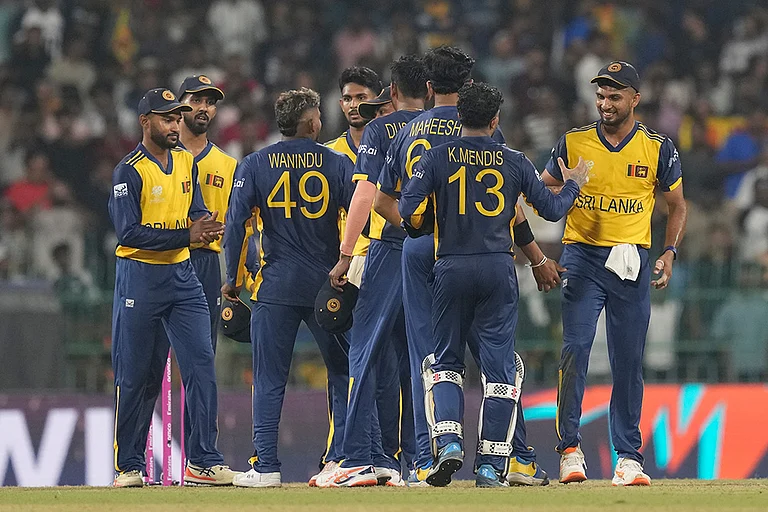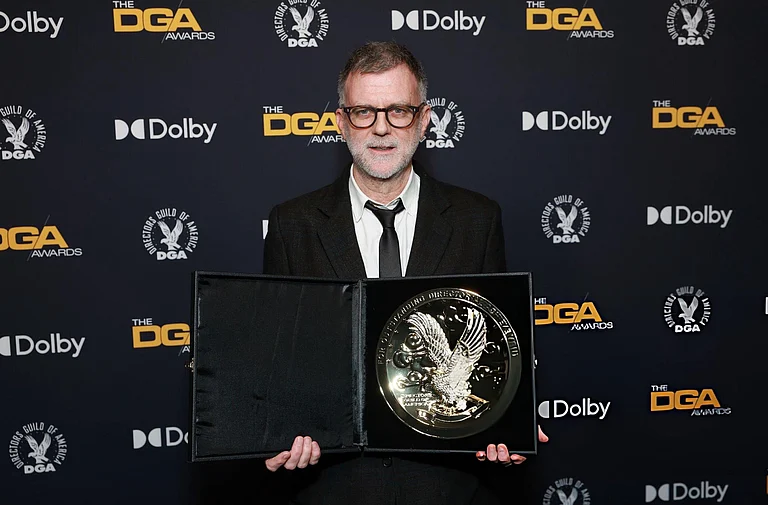Mario Paonessa, 49, physical instructor in a Milan high school, has a rather unenviable routine at the Arya Vaidya Sala at Kottakal, 40 km from Kozhikode in Kerala. His Rasayana treatment at the 93-year-old Ayurveda treatment centre involves imbibing quantities of special ghee for the first week. After this there's a steam bath routine for another week, followed by 14 days of oil enema and finally three days of sucking oil through the nose. All this before he gets to the stage where he can graduate to special herbal tonics.
Paonessa is not sick. He just undergoes this treatment to emerge fitter for the strenuous routine back home. In 1995, out of the 1,384 in-patients the Vaidya Sala received, 280 were foreigners, a figure that's been increasing with each passing year. Says K. Vijayan Varier, administrative officer at the nursing home: "The majority of the foreigners who come here are those whom other systems of medicine have failed to cure. They come here as a last resort."
While the more famous of the foreign patients coming here last year included Sri Lankan Prime Minister Sirimavo Bandaranaike, whose 20-day stint of treatment under P.K. Varier, 75, the Vaidya Sala's chief physician, helped cure her foot malady considerably, the illustrious patients in the past have included Jai Prakash Narayan and former Indian president V.V. Giri and more recently, Justice Kuldeep Singh from Delhi and dancer Protima Bedi.
Interestingly, the biggest chunk amongst the foreigners are Arabs, followed by Europeans. Says Varier: "The Arabs hear about the place from Kerala expatriates in the Gulf." So pressed is the centre for bed space that a patient showing interest now can only become an inpatient around mid-1997. Says Eltriede Bode, 68, a German patient: "I waited for 18 months before they offered me a bed." Bode, who teaches hatha yoga back in Munich, suffers from bronchitis and arthritis and says it's the very severity of her problems that got her here.
Part of the reason, of course, for the lengthy waiting period is the long duration of treatment. Says T.N. Unnikrishnan, physician at the Vaidya Sala: "The duration is in multiples of seven ranging between 14, 21 or 28 days." The USP of the place remains specially-developed oil massages and enemas. Says Varier: "Contrary to the way Ayurveda developed in northern India, our treatment is based more on herbal preparations rather than on mineral or bhasm treatment."
To keep its traditional manufacturing centre supplied with the huge quantities of herbs used, the Vaidya Sala has 200 acres of land spread over Kerala growing medicinal plants. In addition, it has 13 branches all over the country, including one in Delhi, to treat outdoor patients.
While about 20 per cent of those admitted are paralytic patients, the other major disorders for which treatment is available include arthritis, Parkinson's disease, neuro-diseases, heart diseases and even insomnia. Says Professor T. Gelbum, who teaches Sanskrit at London University and has come to the Sala for Parkinson's treatment for the third consecutive year: "The beauty of the treatment is that the organic drugs used here have no side effects. In fact, Sinemet Plus (L-Dopa) which was developed in the West just 30-40 years ago was known to Ayurveda practitioners as the Atmagupta root, 2,000 years ago."
Treatment costs too aren't exorbitant. While foreigners are charged anything between $ 750 to $ 1,000 per month for treatment, Indians are charged much less. And the Vaidya Sala even runs a charitable hospital where treatment is free of cost.
Perhaps the best tribute to the centre comes from Shoukath Hussain, a 42-year-old Indian expatriate in the UAE, who had a cerebral haemorrhage a few months ago and suffers from co-ordination problems. While doctors advised radio surgery as the only way out, Hussain backed out, expressing more faith in his home state's traditional cure. Says he: "I used to cry 75 per cent of the time. As the treatment has progressed I have regained confidence in my life."






















